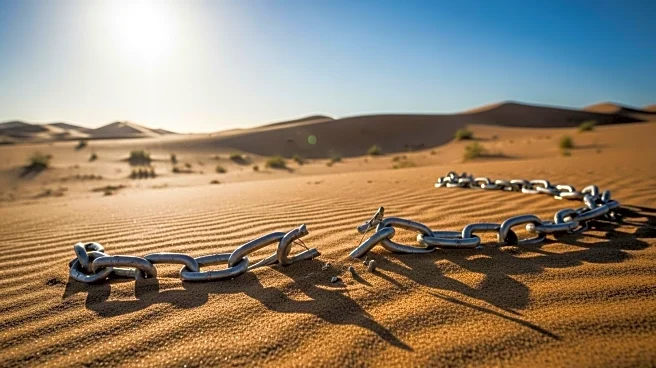What is the story about?
What's Happening?
Migrants attempting to leave Mauritania for Europe have reported severe mistreatment by security forces funded by the European Union. These forces are tasked with preventing migrants from embarking on the dangerous journey across the sea. Abdramane Barry, a migrant from Sierra Leone, shared his experience of being detained in overcrowded conditions with inadequate food and water. Human Rights Watch has documented similar abuses, including arbitrary detention and extortion, in a report. The EU has been criticized for outsourcing migration management to countries like Mauritania, Libya, and Tunisia, where abuses are prevalent.
Why It's Important?
The allegations against EU-funded security forces highlight significant human rights concerns in the management of migration. The EU's approach to outsourcing border control to countries with poor human rights records raises ethical questions and could damage its reputation. Migrants, often fleeing dire conditions, face additional hardships and abuses, which may exacerbate the humanitarian crisis. The situation calls for a reevaluation of EU policies to ensure the protection of migrants' rights and adherence to international human rights standards.
What's Next?
The EU has stated its commitment to addressing allegations of mistreatment and ensuring respect for human rights. However, the effectiveness of these efforts remains to be seen. Human rights organizations may continue to pressure the EU for more transparent and humane migration policies. The situation in Mauritania and similar countries could prompt further investigations and policy changes, potentially influencing EU relations with these nations.
Beyond the Headlines
The outsourcing of migration control to countries with questionable human rights practices reflects broader geopolitical dynamics. It underscores the EU's struggle to balance border security with humanitarian obligations. This approach may lead to long-term shifts in migration patterns and international relations, as affected countries and migrants respond to these policies.
















